Once Upon a Time

The tale of the kingdom of toolmakers
Find out about the famous toolmakers, the spirit of Open Source, what they have in common with our TYPO3 extension SLAs and why this will increase efficiency and reliability of your projects.
Estimated time to read: 9 minutes
The Kingdom of Toolmakers
Once upon a time there was a toolmaker
He was a very good toolmaker and his tools were famous all over the world for being the most durable and reliable tools people ever had seen. After a while he was not able to produce and maintain the tools for all the people, who wanted to work with them anymore, so he gathered many other toolmakers around his workshop, each of them almost just as skilled as himself.
A few years later he had become the king of a small kingdom of toolmakers and they all agreed to obey just a few laws on how they wanted to produce their tools and how to enable other people to make use of those. They agreed, that it would be better not to sell the tools to the people, but to give them away for free, so everybody would be able to use their famous tools, and nobody would be left behind, because he could not afford to buy them. They believed that in return the people using their tools should take care of their toolmakers so they would not lack anything.

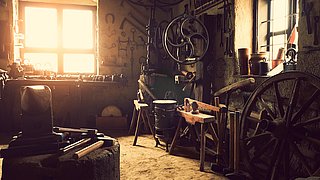
Each of them would give a reasonable share of what they earned or created with those tools so that the toolmakers would be able to focus on creating and maintaining the tools everybody made use of to make a living. They were inspiring people to share and the people happily used their tools and they returned not just the share they had agreed upon but even ideas and techniques to improve the quality, the usability and the efficiency of these tools.
The Profiteers
Some day a few of the people found out
that they could even make a living by just taking the tools they got for free and selling them to others. Those others did not know very much about the kingdom of the toolmakers and the laws its citizens and the king had agreed upon. Since one did not have to pay anything to the toolmakers, anybody could still sell these tools at a reduced rate compared to the large tool factories. It was quite easy to earn a living that way, so there were lots of tool shops in the kingdom soon and they were spreading all around the world within no time.
Since everybody was allowed to take the tools and sell them to others at any price, many of the people running the new tool shops did not even know about the king and his kingdom of toolmakers because they got their tools from somebody else. So these people never showed up in the kingdom with the share that was meant to be the base for the success of the toolmakers. Their tools needed to be maintained and sometimes they needed even newly designed tools, because the ones they got were outdated and did not work together anymore with other modern tools they were selling.
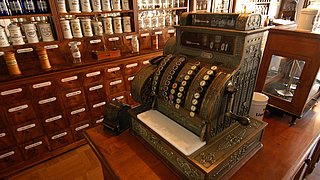
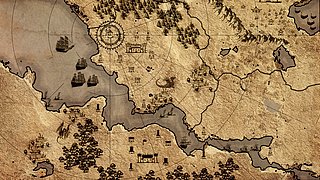
But they did not know who to approach to get a set of upgraded or refurbished tools. So they tried to repair and maintain the tools they were selling as best as they could. But they never reached the famous quality of the original tools anymore, and each of them had to hire and pay their own grinder to satisfy the people who had bought their tools before.
Then again there were tool shop owners, who actually knew about the kingdom and the agreements, but they thought it would be enough if other people shared a portion of their
products or their earnings, because the toolmakers already would have got more than enough of these shares. Still they paid their own grinders, because they thought it would be easier and cheaper to have a maintainer in their shop, who would take care of the tools they had sold to their clients.
The Downfall
The years passed and there were even more people
selling the tools they got for free from the king and his toolmakers, but the share of products, earnings, ideas and improvements that was returned to the kingdom diminished. Still the tool shop owners demanded new and improved tools and those who did not have grinders of their own even complained because their tools had to be fixed and they did not know how to do it themselves.
The people who had bought products and tools from the tool shop owners got angry, because there was nobody who would have been able to take care of what they actually paid for and because their tools were broken and unusable.
After a while they told everybody, that the tools of the kingdom of toolmakers never met their expectations, so they had to buy tools from the large tool factories again. They never came back to any of the tool shops. So many of the shop owners had to wind up their business and to dismiss their grinders.
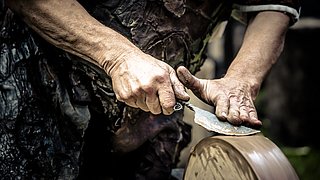

Now both, the shop owners and the grinders complained about the bad quality of the tools themselves, which they thought to be responsible for the failure of their business. They never came back to the kingdom and decided to sell other tools instead. Now some of the tool shop owners and the people who had bought their tools wanted to find out what happened to the tool makers. They wanted to know why the famous tools had become so infamous that they could not earn their living with them anymore.
So they headed to the kingdom and on their way they moaned and complained about the toolmakers:
Why are they so irresponsible to give away the tools, although they can't maintain them later on?
Why are they so greedy to ask for a share, although the tools are available for free?
Why do we have to maintain the tools ourselves, although they are the providers of those tools?
Why did they destroy our business by just being too lazy to take care of their own products?
The Enlightenment
Finally the crowd reached the kingdom and what they found out was quite a surprise to them.
Most of the toolmakers were no toolmakers anymore at all. They had to get another job for a living thus making it impossible for many of them to continue being one of the famous toolmakers anymore. Some of them worked for those tool shops that were still up and running, but they were not allowed to take care of their own tools during official working hours.
Some of them still took care of their tools, but they had to do it in their spare time, so they had to neglect improvements and maintenance. Some of them had just left the kingdom and found another kingdom, where it was easier to make a living as a toolmaker. The king himself had resigned a long time ago, since he already foreshadowed the sellout of his tools. This had been absolutely not in the spirit of the agreements he actually had in mind when he had founded his kingdom, so he had stepped back and handed over his crown to two other toolmakers.
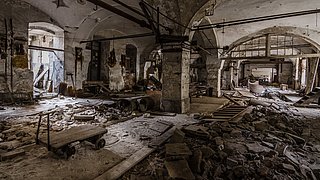

But even those sovereigns had not been able to convince the people that it just needs a small share of their earnings to keep up the impressive work of the famous toolmakers. "Why should we give them anything" - they asked - "when the tools are available for free? What do we get in return for the share we pay? And if we don't get anything in return, why should we pay at all?" - "But you get these famous tools", the sovereigns said, "and you should just make sure that the toolmakers providing you with those can make a living without having to do another job!"
But most of the people failed to see it that way and insisted on the law that allowed them to get everything for free.
The Compensation
But then one of the toolmakers, who already had a hard time
to make a living for his family, but still kept up working on some of the tools in his spare time, came up to his wife with an idea. "What if we still gave them our tools for free, but sold our services to those who demand them? This way people could get the warranty that there will always be someone who is taking care of their tools.
Many of the shop owners could keep up their business and even improve their profit, because their maintainers wouldn't have to take care of the tools anymore. Instead they could focus on the products they are going to create with those tools. Meanwhile we could provide them with the necessary improvements and maintenance. Then again this will reduce the number of patched and rebuilt tools, because there will be a centralized place to go to pick up fixed and improved tools"


His wife already liked the idea, but then she added: "If we can do that for the tools we created, why shouldn't we provide that service for our fellow toolmakers as well? Wouldn't it be nice if we could enable them to make a living based on services around their tools too?"
"Yes - this would be really nice", he answered. "So maybe it's just not enough to INSPIRE people to share and finally this would
ENABLE people to share!
And this is why we founded Coders.Care
Watch the video of our presentation at T3CON18 in Berlin.
© Copyright 2026 Cybercraft GmbH








 Coders.Care is the logical progression of the cooperation between providers of TYPO3 extensions and their users. Especially the point of communication during the preparation of a project will be optimized thereby. The developers can focus on their strenghts, while Coders.Care deals with questions, answers and management. In the consequence there will be clear statements about maintenance and further development of TYPO3 extensions, so the trust in TYPO3 and the projects implemented with it will be strengthened. As a TYPO3 agency we can only benefit of such a service.
Coders.Care is the logical progression of the cooperation between providers of TYPO3 extensions and their users. Especially the point of communication during the preparation of a project will be optimized thereby. The developers can focus on their strenghts, while Coders.Care deals with questions, answers and management. In the consequence there will be clear statements about maintenance and further development of TYPO3 extensions, so the trust in TYPO3 and the projects implemented with it will be strengthened. As a TYPO3 agency we can only benefit of such a service.